Энтони Хоуп - Английский язык с Энтони Хоупом. Узник Зенды / Anthony Hope. The Prisoner Of Zenda
- Название:Английский язык с Энтони Хоупом. Узник Зенды / Anthony Hope. The Prisoner Of Zenda
- Автор:
- Жанр:
- Издательство:Литагент «Восточная книга»1243df63-7956-11e4-82c4-002590591ed2
- Год:2009
- Город:Москва
- ISBN:978-5-478-01181-9
- Рейтинг:
- Избранное:Добавить в избранное
-
Отзывы:
-
Ваша оценка:
Энтони Хоуп - Английский язык с Энтони Хоупом. Узник Зенды / Anthony Hope. The Prisoner Of Zenda краткое содержание
В книге предлагается роман Энтони Хоупа «Узник Зенды», адаптированный (без упрощения текста оригинала) по методу Ильи Франка. Уникальность метода заключается в том, что запоминание слов и выражений происходит за счет их повторяемости, без заучивания и необходимости использовать словарь.
Пособие способствует эффективному освоению языка, может служить дополнением к учебной программе. Предназначено для студентов, для изучающих английский язык самостоятельно, а также для всех интересующихся английской культурой.
Английский язык с Энтони Хоупом. Узник Зенды / Anthony Hope. The Prisoner Of Zenda - читать онлайн бесплатно ознакомительный отрывок
Интервал:
Закладка:
“I’ll not go before he’s buried (я не уеду, пока он не будет похоронен).”
“Yes, you will (уедете).”
“Not I, Colonel Sapt; not for all Ruritania (нет, полковник Сэпт; нет, даже ради всей Руритании).”
“You fool!” said he. “Come here (глупец, – сказал он, – идите сюда).”
He drew me to the door (он потащил меня к двери). The moon was sinking, but about three hundred yards away (луна заходила, но вдалеке, ярдах в трехстах), coming along the road from Zenda, I made out a party of men (я различил группу людей, направляющихся по дороге из Зенды; to make out – разобрать, увидеть ). There were seven or eight of them (их было семь или восемь); four were on horseback and the rest were walking (четверо были на лошадях, остальные – пешие; horseback – спина лошади ), and I saw that they carried long implements, which I guessed to be spades and mattocks, on their shoulders (и я видел, что на плечах они несли /какие-то/ длинные предметы, которые, /как/ я догадался, были лопатами и мотыгами; implement – орудие, инструмент; implements – предметы, принадлежности ).
“They’ll save you the trouble,” said Sapt. “Come along (они избавят вас от хлопот, – сказал Сэпт, – пойдемте).”
He was right (он был прав). The approaching party must, beyond doubt, be Duke Michael’s men, come (приближающаяся группа, /состоящая/, несомненно, из людей герцога Михаэля, /должна была/ прийти; beyond – за, по ту сторону; вне, сверх, выше; doubt – сомнение; beyond doubt – бесспорно, вне / всякого / сомнения ) to remove the traces of their evil work (чтобы уничтожить следы своего злодеяния). I hesitated no longer, but an irresistible desire seized me (я более не колебался, но непреодолимое желание охватило меня).

“The horses are all right; there’s the own brother to the one that brought you here. But you may save yourself that job.”
“I’ll not go before he’s buried.”
“Yes, you will.”
“Not I, Colonel Sapt; not for all Ruritania.”
“You fool!” said he. “Come here.”
He drew me to the door. The moon was sinking, but about three hundred yards away, coming along the road from Zenda, I made out a party of men. There were seven or eight of them; four were on horseback and the rest were walking, and I saw that they carried long implements, which I guessed to be spades and mattocks, on their shoulders.
“They’ll save you the trouble,” said Sapt. “Come along.”
He was right. The approaching party must, beyond doubt, be Duke Michael’s men, come to remove the traces of their evil work. I hesitated no longer, but an irresistible desire seized me.
Pointing to the corpse of poor little Josef, I said to Sapt (указывая на труп бедного маленького Жозефа, я сказал Сэпту):
“Colonel, we ought to strike a blow for him (полковник, мы должны отомстить за него; to strike a blow – наносить удар )!”
“You’d like to give him some company, eh (вы бы хотели дать ему кого-то в провожатые, а; company – общество, компания; собеседник, спутник )! But it’s too risky work, your Majesty (но это слишком рискованно, ваше величество; work – работа, труд; занятие, дело ).”
“I must have a slap at ’em (я должен их проучить: «дать им пощечину»; slap – шлепок, пощечина ),” said I.
Sapt wavered (Сэпт колебался; to waver – колыхаться, дрожать; колебаться, проявлять нерешительность ).
“Well,” said he, “it’s not business, you know (ну, это не дело, как вы понимаете); but you’ve been good boy – and if we come to grief (но вы /держитесь/ молодцом, и если у нас ничего не выйдет; to come to grief – попасть в беду; потерпеть неудачу ), why, hang me, it’ll save us lot of thinking (что ж, будь я проклят, это избавит нас от многих раздумий; lot of – большое количество, множество )! I’ll show you how to touch them (я покажу вам, как с ними разделаться; to touch – касаться, трогать; наносить вред, ущерб ).”
He cautiously closed the open chink of the door (он осторожно притворил дверь: «открытую щель в двери»).
Then we retreated through the house and made our way to the back entrance (потом мы прошли через весь дом к заднему входу; to retreat – отходить, отступать; удаляться, уходить; to make one’s way – направляться ). Here our horses were standing (здесь стояли наши лошади). A carriage-drive swept all round the lodge (дорога для экипажей проходила вокруг домика; to sweep – мести, подметать; простираться, тянуться ).
“Revolver ready?” asked Sapt (револьвер наготове? – спросил Сэпт).
“No; steel for me (нет; меч – /вот это/ по мне; steel – сталь; холодное оружие, меч, шпага ),” said I.
“Gad, you’re thirsty tonight,” chuckled Sapt (Господи, /как/ вы кровожадны сегодня: «сегодня вечером», – фыркнул Сэпт; thirsty – испытывающий жажду ). “So be it (пусть будет так).”

Pointing to the corpse of poor little Josef, I said to Sapt:
“Colonel, we ought to strike a blow for him!”
“You’d like to give him some company, eh! But it’s too risky work, your Majesty.”
“I must have a slap at ’em,” said I.
Sapt wavered.
“Well,” said he, “it’s not business, you know; but you’ve been good boy – and if we come to grief, why, hang me, it’ll save us lot of thinking! I’ll show you how to touch them.”
He cautiously closed the open chink of the door.
Then we retreated through the house and made our way to the back entrance. Here our horses were standing. A carriage-drive swept all round the lodge.
“Revolver ready?” asked Sapt.
“No; steel for me,” said I.
“Gad, you’re thirsty tonight,” chuckled Sapt. “So be it.”
We mounted, drawing our swords (мы вскочили на коней, обнажили наши мечи; to draw – тащить, тянуть; вытаскивать, выдергивать ), and waited silently for a minute or two (и ждали молча несколько минут: «минуту или две»). Then we heard the tramp of men on the drive the other side of the house (потом мы услышали шаги /тех/ людей на дорожке с другой стороны дома; tramp – бродяга; звук тяжелых шагов ). They came to a stand, and one cried (они остановились, и один крикнул; to come to a stand – остановиться ):
“Now then, fetch him out (а ну-ка, вынесите его)!”
“Now!” whispered Sapt (сейчас! – шепнул Сэпт).
Driving the spurs into our horses, we rushed at a gallop round the house (дав шпоры нашим лошадям, мы галопом понеслись вокруг дома), and in a moment we were among the ruffians (и через миг находились среди этих негодяев; ruffian – хулиган, бандит; негодяй, злодей ). Sapt told me afterwards that he killed a man, and I believe him (Сэпт рассказывал мне впоследствии, что он убил одного, и я верю ему); but I saw no more of him (но я его = Сэпта больше не замечал). With a cut, I split the head of a fellow on a brown horse (ударом меча я раскроил череп: «голову» типу на бурой лошади; cut – порез, разрез; сильный удар / мечом, кнутом /), and he fell to the ground (и он упал на землю; to fall ). Then I found myself opposite a big man (потом я оказался напротив здорового парня; to find oneself ), and I was half conscious of another to my right (и смутно сознавал, что еще один /находится/ справа; half – наполовину; conscious – сознающий; ощущающий ). It was too warm to stay, and with a simultaneous action (мешкать не было времени: «было слишком жарко, чтобы задерживаться», и одновременным движением; warm – теплый; жаркий; to stay – оставаться, не уходить; приостанавливаться, задерживаться ) I drove my spurs into my horse again and my sword full into the big man’s breast (я снова всадил шпоры в своего коня, а меч по самую рукоять: «полностью» – в грудь здоровяка). His bullet whizzed past my ear (его пуля со свистом пронеслась мимо моего уха) – I could almost swear it touched it (я мог почти поклясться, что она коснулась его).

We mounted, drawing our swords, and waited silently for a minute or two. Then we heard the tramp of men on the drive the other side of the house. They came to a stand, and one cried:
“Now then, fetch him out!”
“Now!” whispered Sapt.
Driving the spurs into our horses, we rushed at a gallop round the house, and in a moment we were among the ruffians. Sapt told me afterwards that he killed a man, and I believe him; but I saw no more of him. With a cut, I split the head of a fellow on a brown horse, and he fell to the ground. Then I found myself opposite a big man, and I was half conscious of another to my right. It was too warm to stay, and with a simultaneous action I drove my spurs into my horse again and my sword full into the big man’s breast. His bullet whizzed past my ear – I could almost swear it touched it.
Читать дальшеИнтервал:
Закладка:
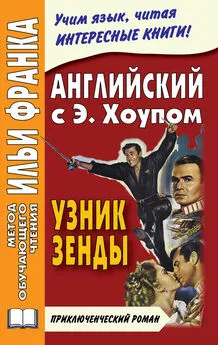
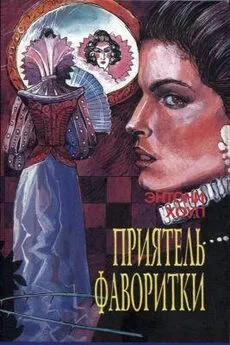
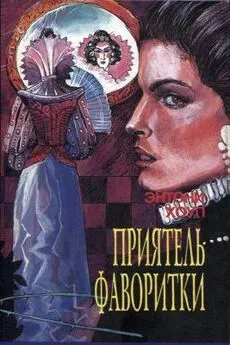
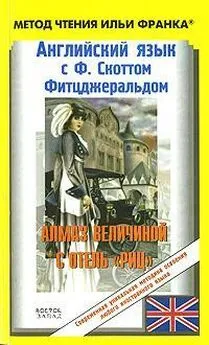
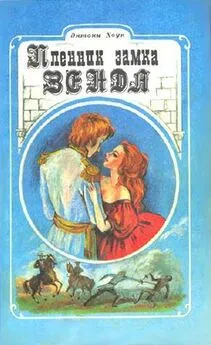
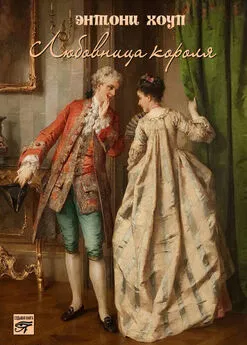
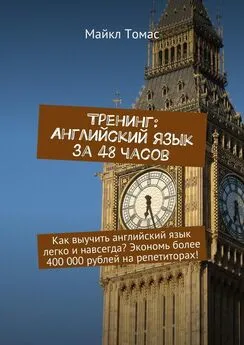
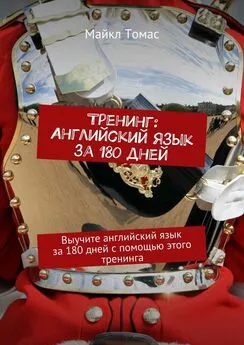
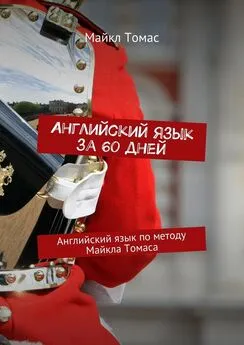
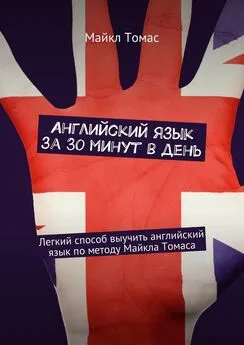
![Энтони Хоуп - Пленник Зенды. Месть Руперта [сборник]](/books/1090466/entoni-houp-plennik-zendy-mest-ruperta-sbornik.webp)